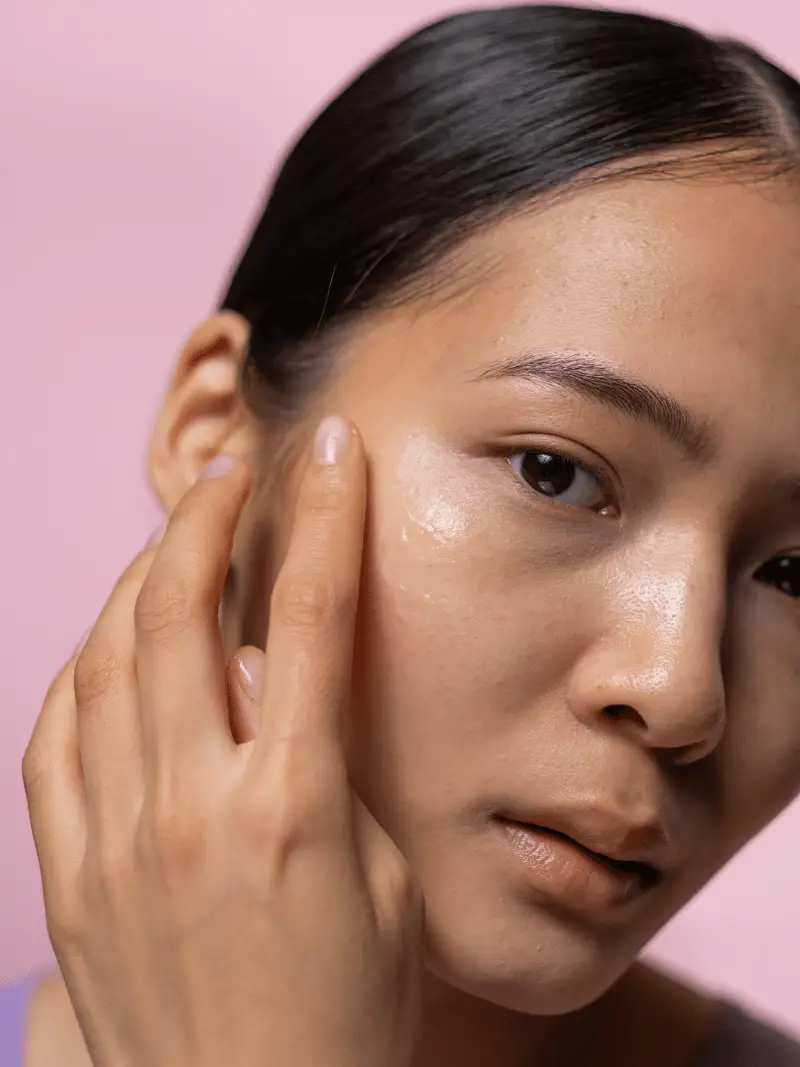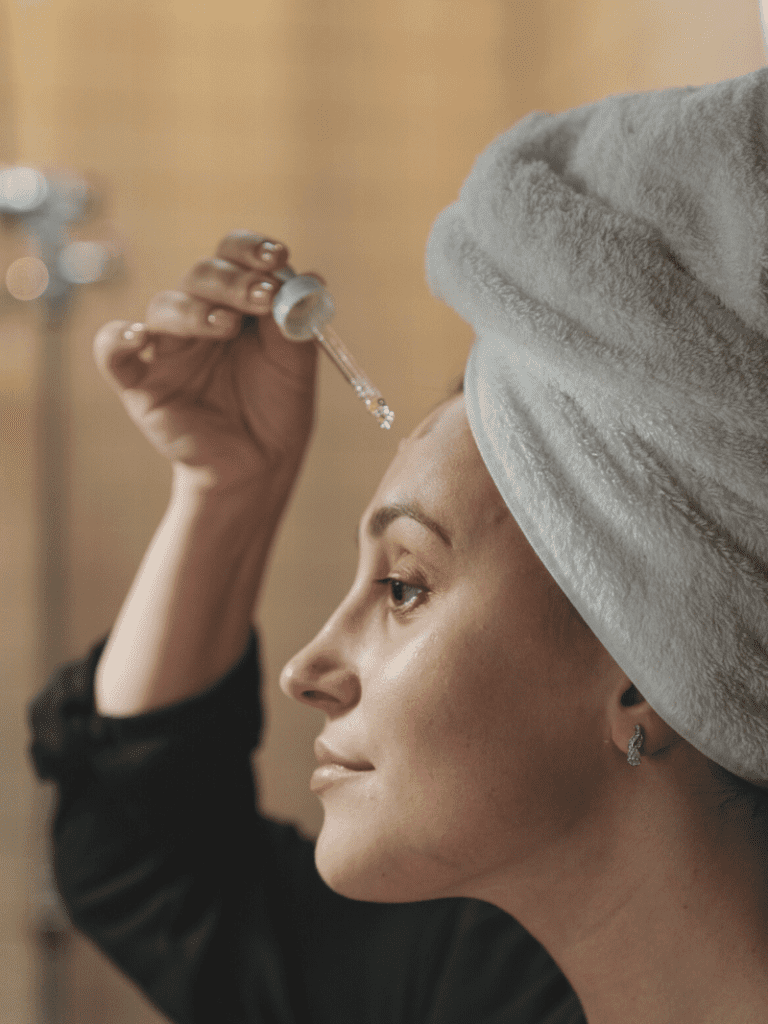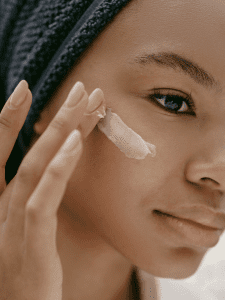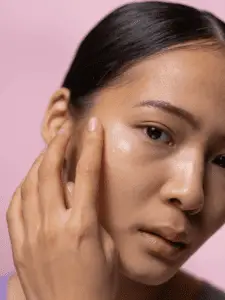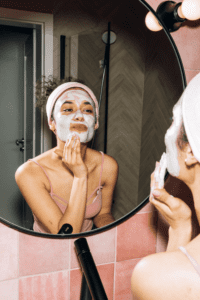If you’re looking to achieve perfect skin, using a combination of face serums can be a great way to target specific skin concerns and give your complexion a boost. By combining different serums, you can tailor your skincare routine to your unique needs, addressing issues such as dryness, fine lines, dark spots, and more. We asked our beauty editor for their recommendations for some of the best face serum combinations for perfect skin, and tips for how to incorporate them into your skincare routine. Whether you’re dealing with dullness, uneven texture, or other common skin concerns, there’s a serum combination out there that can help you achieve the glowing, radiant complexion of your dreams.
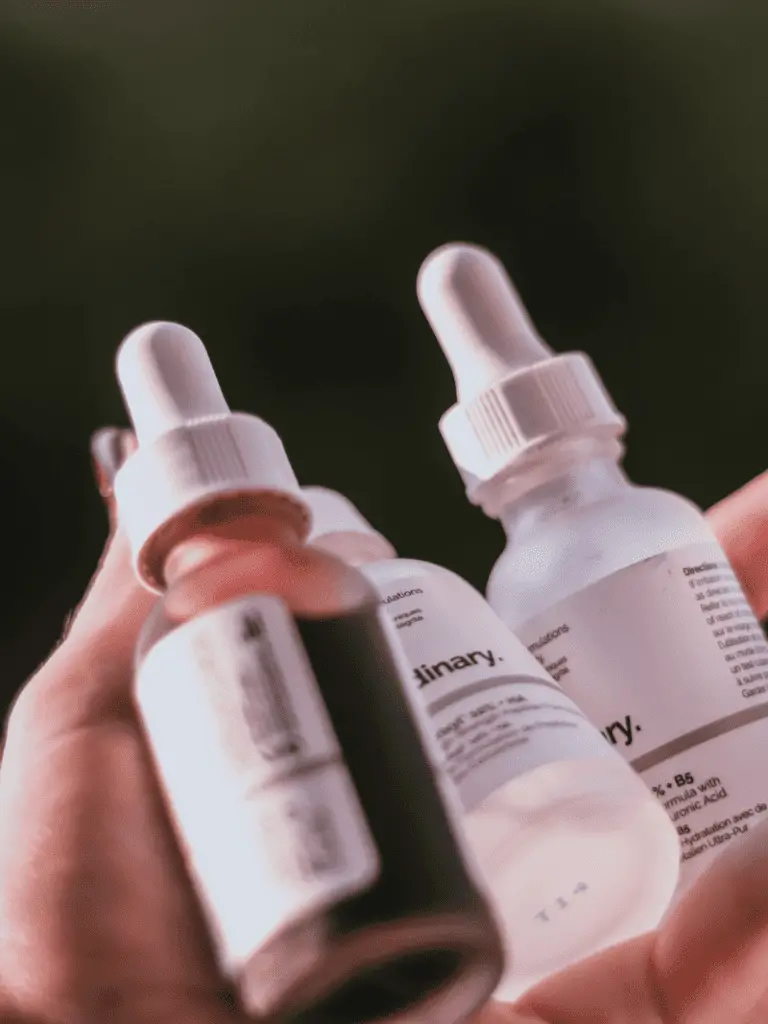
Which Skincare Ingredients can be Used Together?
Serums are an essential part of any skincare routine, and they can be a game changer for those looking to improve the health and appearance of their skin. But with so many different serums on the market, it can be overwhelming for beginners to figure out which ones are right for them. Here we will introduce you to some of the best serums for beginners and explain why they are worth trying out.
Hyaluronic Acid & Niacinamide
When used together, niacinamide and hyaluronic acid can work to nourish and hydrate the skin, helping to improve its overall appearance and texture. Niacinamide can help to improve the skin’s barrier function and reduce inflammation, while hyaluronic acid helps to keep the skin hydrated and plump. This combination can be particularly beneficial for those with dry or dehydrated skin.
Hyaluronic Acid & Retinol
Retinol and hyaluronic acid can work to nourish and hydrate the skin, helping to improve its overall appearance and texture. Retinol can help to improve the skin’s texture and firmness, while hyaluronic acid helps to keep the skin hydrated and plump. This combination can be particularly beneficial for those with dry or dehydrated skin, as retinol can be drying and irritating to the skin.
It’s important to note that retinol and hyaluronic acid can be used together as part of a skincare routine, but it’s always a good idea to patch-test any new product to ensure it is suitable for your skin. It’s also important to follow the instructions on the product label and to use products in the recommended order to get the most benefit. Also, it’s a good idea to start with a lower concentration of retinol and gradually increase the concentration as your skin becomes more tolerant to it. It’s also important to use a broad-spectrum sunscreen when using retinol, as it can make the skin more sensitive to UV radiation.
Alpha Arbutin & Mandelic Acid
Alpha arbutin and mandelic acid can work to improve the overall appearance of the skin by lightening hyperpigmentation and exfoliating the skin. It can help to inhibit the production of melanin, while mandelic acid helps to loosen and remove dead skin cells, leaving the skin looking brighter and more radiant. This combination can be particularly beneficial for those with hyperpigmentation, uneven skin tone, and acne-prone skin.
Retinol & Ferulic Acid
When used together, retinol and ferulic acid can work to improve the overall appearance and health of the skin. Retinol can help to improve the skin’s texture and firmness, while ferulic acid helps to protect the skin from environmental stressors. This combination can be particularly beneficial for those with aging or sun-damaged skin, as it can help to improve the appearance of fine lines and wrinkles and protect the skin from further damage.

Which Skincare Actives Cannot Be Used Together?
As with most things in life, there is a such thing as too much of a good thing. Using active ingredients in your skincare products is no different. If you are new to using acids and serums in your skincare routine, there are a few serum combinations you should use with extreme caution if at all.
Two Products With the Same Actives
Using two skincare products with the same active ingredients can potentially lead to overuse and irritation of the skin. Each product is formulated with a specific concentration of active ingredients, and using two products with the same active ingredients can result in a higher concentration of that ingredient being applied to the skin. This can lead to overuse, which can cause irritation and potentially worsen certain skin concerns.
Retinoid or Retinol & Alpha Hydroxy Acid
It is generally recommended to avoid using retinol and alpha-hydroxy acids (AHAs) together in the same skincare routine, as they can potentially cause irritation and dryness when used together.
Retinol is a form of vitamin A that is known for its ability to improve the appearance of fine lines, wrinkles, and uneven skin tone. It works by increasing skin cell turnover and stimulating collagen production, which can help to improve the overall texture and firmness of the skin. Retinol can be effective in improving the appearance of acne, hyperpigmentation, and sun damage, but it can also be drying and irritating to the skin, especially when used in high concentrations or when the skin is not adequately moisturized.
AHAs are a group of exfoliating ingredients that are derived from fruits and milk. They work by dissolving the bonds between skin cells, which helps to loosen and remove dead skin cells from the surface of the skin. AHAs can be helpful in improving the appearance of uneven skin tone and texture and may also be helpful in reducing the appearance of acne and fine lines. AHAs can also be drying and irritating to the skin, especially at higher concentrations.
Using retinol and AHAs together can potentially increase the risk of irritation and dryness, as both ingredients can be drying and irritating to the skin. These ingredients are best used separately, as part of a different skincare routine, or on alternate days. This allows the skin time to adjust and recover.
Retinoid or Retinol & Benzoyl Peroxide
Benzoyl peroxide is a topical acne treatment that is known for its ability to kill acne-causing bacteria and reduce inflammation. It is available in a variety of concentrations and formulations, including gels, creams, and cleansers. Benzoyl peroxide can be effective in treating acne, but it can also be drying and irritating to the skin, especially at higher concentrations.
Using retinol or a retinoid and benzoyl peroxide at the same time can be irritating and drying to the skin. It’s generally recommended to use these ingredients separately, as part of a separate skincare routine, or to alternate them to give the skin time to recover.
Retinoid or Retinol & Vitamin C
Vitamin C is a potent antioxidant that is known for its ability to improve the appearance of uneven skin tone and texture and protect the skin from environmental stressors, such as pollution and UV radiation. It is available in a variety of forms, including serums, creams, and peels, and is often used to improve the appearance of fine lines, wrinkles, and sun damage. Vitamin C can be sensitive to light and air, and its effectiveness can be compromised if it is not stored or used properly.
Using retinol and vitamin C together can potentially cause irritation, as both ingredients can be drying and irritating to the skin. In addition, vitamin C can inactivate retinol, reducing its effectiveness. Use these ingredients separately as part of a distinct skincare routine, or alternate their use every other day to give your skin time to recover and adjust.
Retinoid or Retinol & Salicylic Acid
Salicylic acid is a type of beta-hydroxy acid (BHA) that is known for its exfoliating and pore-cleansing properties. It is often used to treat acne and improve the appearance of uneven skin tone and texture. Salicylic acid works by dissolving the bonds between skin cells, which helps to loosen and remove dead skin cells from the surface of the skin. It is also thought to have anti-inflammatory and antibacterial properties, which can be helpful in reducing the appearance of acne. Salicylic acid can be drying and irritating to the skin, especially at higher concentrations.
Using retinol and salicylic acid together can potentially increase the risk of irritation and dryness, as both ingredients can be drying and irritating to the skin.
The content provided in this article is provided for informational purposes only and is not a substitute for professional advice and consultation, including professional medical advice and consultation. It is provided with the understanding that we are not engaged in the provision or rendering of medical advice or services. The opinions and content included in the article are the views of the author only, and we do not endorse or recommend any such content or information, or any product or service mentioned in the article. You understand and agree that we shall not be liable for any claim, loss, or damage arising out of the use of, or reliance upon any content or information in the article.

Add a Little LOVELY to Your Inbox
Subscribe to stay up-to-date with new posts, receive exclusive content updates, beauty & style advice, personal development tips, and curated round-ups of the things that help me make my life lovely.

